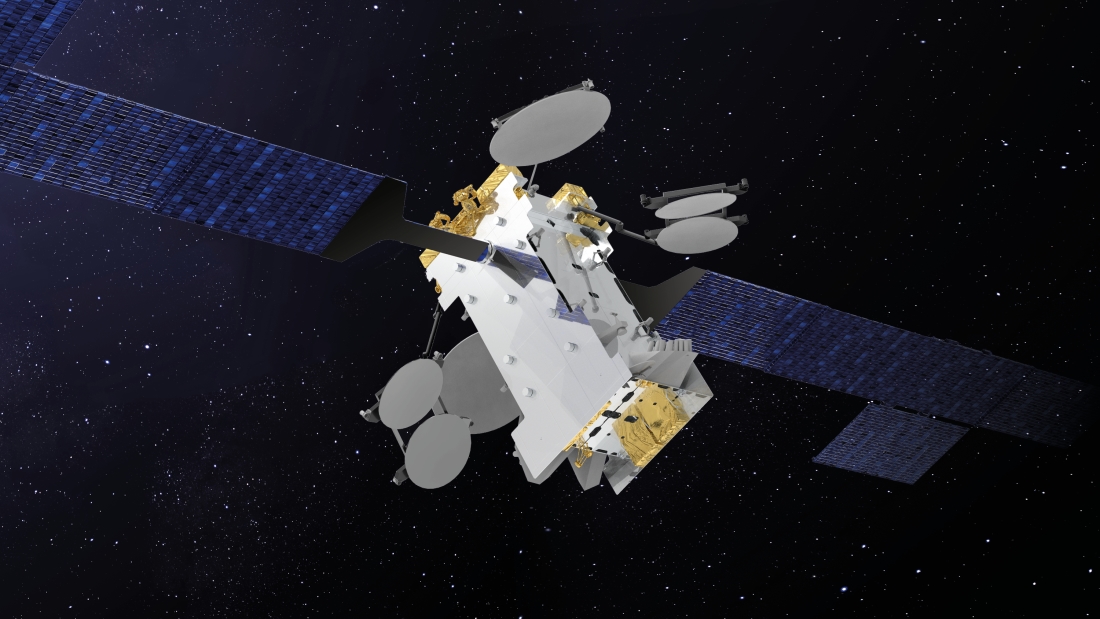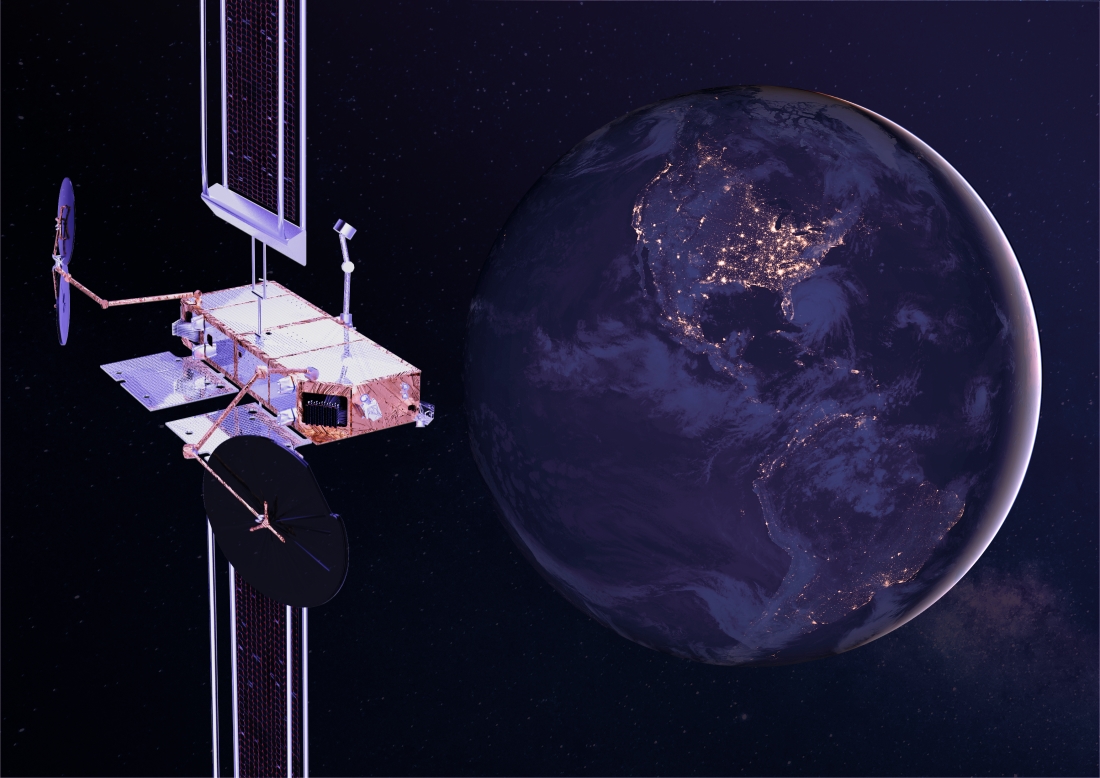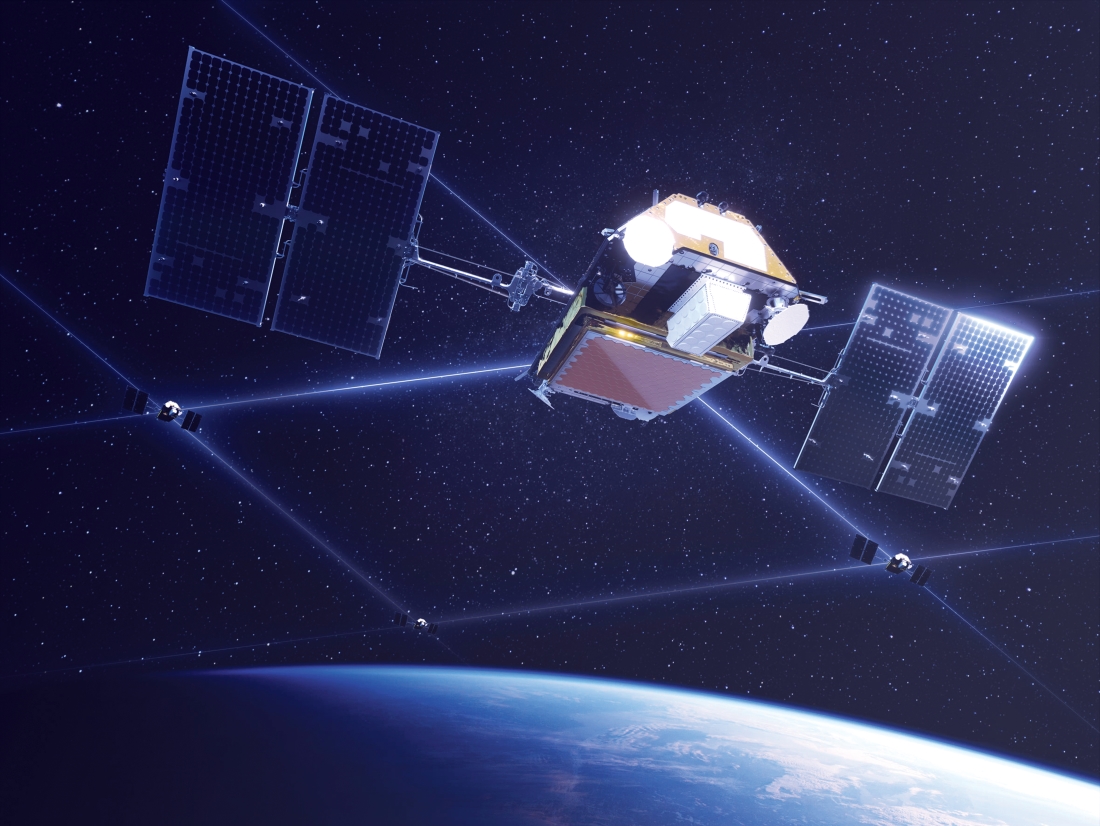From March 9 to 12 at Satellite 2020, the leading international conference and exhibition held every year in Washington, D.C., Thales Alenia Space will showcase its latest technologies for space-based telecommunications systems.
A new decade, a turning point in the space telecom market

Over the last few years, the geostationary communications satellite market had seen a significant downturn. But the market began recovering in 2019, with orders for 17 geostationary communications satellites worldwide: 13 in the commercial market and 4 governmental satellites. Although the market didn’t reach the average volume of about 20/year seen from 2011 to 2016, orders showed a sharp rise from 2017 and 2018, when only 10 and 9 satellites of this type were ordered, respectively. The figures for 2019 herald a recovery in the space telecom market to meet emerging requirements. Driven by the global explosion in demand for connectivity, mobility and very high throughput, the sector should show a strong growth outlook between now and 2025.

Thales Alenia Space also returned in force in this burgeoning market, as it logged four orders for communications satellites in 2019, along with payloads for the Spanish government’s two SPAINSAT NG satellites, then a new contract for Amazonas Nexus in early 2020. Since the middle of the last decade, European manufacturers have won contracts for 11 communications satellites using electric propulsion (which maximizes payload capacity), including seven for Thales Alenia Space. Our all-electric and modular Spacebus NEO platforms, coupled with our flexible very-high-throughput satellite (VHTS) payloads drove us to leadership in this market segment. For example, we’re now building a new satellite, EUTELSAT KONNECT VHTS, featuring all-electric propulsion and a digital payload, with a very-high-performance 5th generation digital transparent processor (DTP5G). This powerful, high-throughput satellite, in the 500 Gbps class, could deliver high-speed Internet to isolated areas in France and throughout Europe where setting up terrestrial infrastructure is problematic. DTP5G is a real differentiating technology, one that allowed us to win several recent contracts: SATRIA for Indonesia, EUTELSAT 10B and Amazonas Nexus for Hispasat.
Solutions tailored to operator needs

Building on our expertise in VHTS technologies, Thales Alenia Space is now launching a brand-new line of communications satellites, Space Inspire. Based on a new medium-size platform, the Space Inspire solution is software-defined, ultra-flexible and fully reprogrammable in orbit, including for coverage zones.
Space Inspire satellites will be fitted with 6th generation digital processors to change the paradigm in the fast-evolving telecom market. Our customers are increasingly forced to develop advanced new services and seize commercial opportunities at any given moment. With our new product line, digital payloads and enhanced flexibility allow operators to dynamically allocate capacity anywhere and at any time, for any bandwidth. To support this new line, Thales Alenia Space recently inaugurated a new “Factory 4 .0” in Hasselt, Belgium. This plant is dedicated to the automated production of photovoltaic assemblies (P.V.A.), which are used on satellite solar arrays to generate electrical power. Both Space Inspire and Spacebus NEO platforms will be fitted with these solar cells.
Thales Alenia Space paves the way for 5G

5G is coming, and everybody’s talking about it. It will shortly define the next generation of mobile devices.
With space-based systems, 5G will offer higher accessibility, reliability and resilience, along with broadcasting and multi-broadcasting capabilities. We expect 5G to support a wide variety of applications so that everybody in the world can be connected. Along with space and mobile phone companies, Thales Alenia Space is supporting the efforts of 3GPP to develop solutions that support the vision of a single global network, with space-based platforms playing a key role and fully integrated in mobile operators’ 5G strategy.
Setting the global standard for satellite constellations

Two communications satellite constellations built by Thales Alenia Space as prime contractor completed their in-orbit deployment in 2019: O3b on behalf of SES, which now has 20 satellites in medium Earth orbit (MEO), and Iridium NEXT on behalf of Iridium, which now has 66 operational satellites in low Earth orbit (LEO).
Having built a total of 125 satellites to date as prime contractor for three constellations (Globalstar 2, O3b and Iridium® NEXT), Thales Alenia Space, which also built 70% of the first-generation Globalstar system, clearly sets the standard for LEO and MEO communications satellite constellations. We’re fully prepared, along with our international partners, to meet even more ambitious challenges for the production of constellations, whether for communications or Earth observation.

We have capitalized on our proven expertise in this field to address three new markets in partnership with startups. Working with SpaceFlight Industries, NorthStar and Hemeria, Thales Alenia Space is offering competitive and innovative, even disruptive solutions adapted to different market segments.
With SpaceFlight Industries, an American startup, Thales Alenia Space has created the equal joint venture LeoStella LCC. A resolutely “New Space” enterprise, this company will produce BlackSky, the first constellation offering very high revisit rates, comprising 60 high-resolution optical observation satellites.
In 2018, the Space Alliance (between Telespazio and Thales Alenia Space) took a stake in NorthStar Earth & Space Inc to develop a system that monitors space from space. The Space Alliance will provide NorthStar with design, development and production solutions for a single constellation of 40 satellites.
Thales Alenia Space is also the system architect for Kineis, a constellation of 25 nano-satellites dedicated to the Internet of Things, produced in conjunction with Hemeria.
A fast-evolving telecom market, and a brand-new lineup
In addition to our proven expertise in constellations, Thales Alenia Space offers various product lines that specifically address the new expectations of the telecommunications market. From Spacebus 4000 B2 platforms, well suited to regional operators, to Spacebus NEO, ready to bring high-speed connectivity to the world, to Space Inspire, the brand-new line of all-digital and reconfigurable platforms, Thales Alenia Space provides solutions tailored to each operator’s exact requirements, to enhance connectivity and bridge the digital divide worldwide.
First artistic view © Thales Alenia Space/Marchioro


